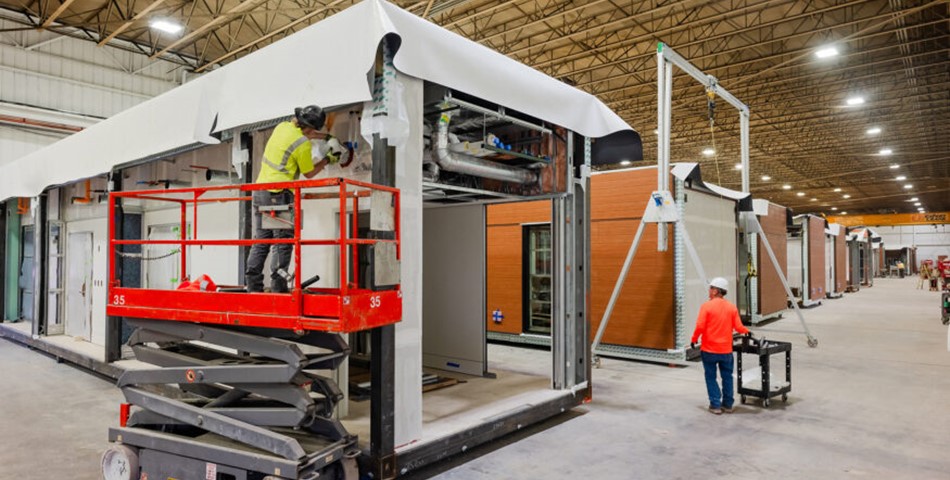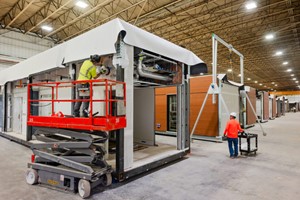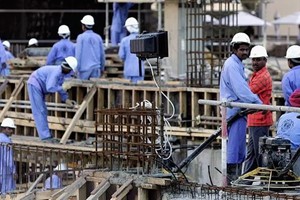Boldt has launched a new modular construction company, Bildt, to address growing demand from facility owners, general contractors, and architects aiming to reduce costs and accelerate project timelines. Bildt will focus on manufacturing modular buildings, slide-in rooms, and bathroom pods for various markets, including health care, industrial, educational, and commercial sectors. The fabrication process will be centered at an off-site facility in Oshkosh, where modular components such as prefabricated panels, headwalls, exterior wall panels, steel wall studs, and interior framing assemblies will be precision-engineered to meet project specifications.
Melanie Taylor and Ben Bruns, both seasoned industry professionals, have been appointed to lead Bildt. Taylor will serve as vice president of manufacturing, while Bruns will oversee sales and marketing efforts as vice president of modular. According to Bruns, "Working with Bildt brings speed, standardization with customization, quality, and in some cases, more than a 30% reduction in first costs over site-built construction."
Bildt’s innovative approach combines off-site fabrication with on-site construction tasks, enabling projects to be completed faster than traditional methods. The company’s products can cut construction times in half, allowing building owners to occupy and generate revenue months earlier than anticipated. This dual approach was notably showcased in November 2024 when Boldt used a crane to install 46 modular units atop the Trout Museum of Art in Appleton. These units, designed as market-rate apartments, demonstrate the flexibility of modular methods for applications such as student housing.
Modular construction is particularly advantageous for health care projects, where the need for rapid expansion or facility modifications can arise unexpectedly. Bildt’s prefabrication methods also address the construction industry’s skilled labor shortage by simplifying complex tasks into repetitive processes that can be efficiently executed in a controlled manufacturing environment. This method is especially valuable in remote locations with limited access to skilled labor, reducing the need for specialized tradespeople and easing entry barriers to job sites.
Bildt’s establishment builds upon Boldt’s extensive experience in modular construction, which dates back to its first modular project in the 1980s. The company’s expertise in prefabrication gained significant traction during the pandemic when hospitals required rapid expansion solutions. "Rooted in our long history as builders, developers, investors, and project owners, we understand our customers’ and the industry’s challenges," said Taylor. “Collaborating with designers and stakeholders early in the process allows us to deliver precision-engineered products tailored to each project’s goals.”
Company officials emphasized the versatility of modular construction in reducing costs, increasing speed to market, and providing customizable solutions for diverse industries. By leveraging its decades-long expertise and innovative practices, Bildt aims to redefine the modular construction landscape.
By Ethan Duran













